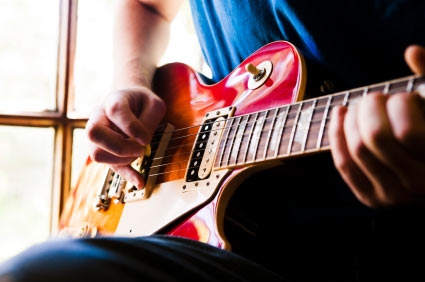In 1968, Texas-born guitarist Mason Williams made musical history when he released his guitar mega-hit, Classical Gas. It was the first and only time a classical guitar piece has appeared on the top-forty charts. Not only that, it is the highest selling instrumental of all time, and arguably, the most famous guitar piece in the world. Sprinkled with catchy melodic themes, key modulations, and complex rhythmic syncopations, the piece sparkles with ingenuity. Although Mason originally wrote the piece as a guitar solo, Mike Post arranged it for guitar and orchestra. The result earned three Grammy awards, and only The Doors kept it from being number one on the charts when it debuted. Countless artists have done cover versions of the piece (including Chet Atkins and Glen Campbell), and Mason has recorded it four times that I know of: the original Grammy-winning version, a solo version on the Handmade album, an American Grammaphone (Mannheim Steamroller) version, and a rendition in his Folio.
I had the good fortune to meet with Mason when I was on tour with Christopher Parkening in Oregon. He attended our concert and reception, and we also met for breakfast the next day. It was an honor to discuss Classical Gas with him, as it had been one of my earliest influences on the guitar. Mason was warm and gracious as I told him of his great influence on my guitar playing and that Classical Gas was one of the two most requested pieces for me, the other being Malaguena. Mason then offered some advice for the piece that he said I could pass on to my students. First, he said that in order to play the 2nd main theme and the modulatory sections the way he does, you must use a 3rd finger bar chord. Specifically, to bar a D chord at the 5th fret, you bar the 5th fret with the 1st finger and strings 2-4 with the 3rd finger on the 7th fret. This is tricky because you must not bar the first string with the 3rd finger. The second piece of advice is regarding the middle section where the horns come in so strongly in Db major. Mason said even Chet Atkins had called him while recording his version of the piece and asked what he would suggest there. Mason told him that in that spot, he could take the piece in whatever direction he wanted (and then come back to the piece later). When he told me this, I immediately remembered a series of Guitar Player articles where Chet had discussed his arrangement. It did have a brand new section in the middle, and I now knew why. Mason said that he just left the section out in his solo version and told me I could tell my students to create whatever they wanted to there. I told him I had always played the horn section on guitar. While he said he had never done that, he didn’t seem to mind the idea. In his new folio, he includes a guitar version of the horn section for those wishing to play that part on the guitar.
Interestingly, a few years ago I started to notice students asking about the Eric Clapton version of Classical Gas circulating on the internet. I said I wasn’t aware that Eric played it, and that I would like to hear it. When one of them played the recording for me, I thought “that really sounds like Mason playing, but without the orchestra.” I checked with Mason to see what was going on. He told me that it was indeed him playing. The piece had been used in the movie, The Story of Us, and Eric Clapton had done the rest of the music. Somehow Eric’s name had ended up on some of the internet recordings.
I still hear Classical Gas frequently, whether on the radio, in the dentist office, or in movies like Cheaper By The Dozen or The Dish. Students play it for me regularly, and I perform it myself quite often. What is amazing, is that I never tire of hearing it or playing it. In fact, through the years as I have studied the piece from a more mature perspective, I realize even more what a masterpiece it indeed is. A phenomenal guitar solo, it captivates audiences and enthralls guitar players who attempt to play it. Whether students play just the intro, or master a full version, it is easy enough to enjoy, yet challenging to master. I imagine that countless guitarists have come to the classical guitar because of that very piece. Beatle George Harrison is famously quoted as saying, “Andres Segovia is the father of us all.” I believe that if Segovia holds that position among guitarists, then Mason Williams is certainly the favorite uncle! By his amazing Classical Gas he has inspired generations of guitarists to pursue the guitar and unlock its treasures.
For the sheet music, check out Classical Gas – The Music of Mason Williams, published by Warner Brothers Publications. The book also includes many of his other great compositions including Saturday Night at the World, La Chanson de Claudine, and Flamenco Lingo.



